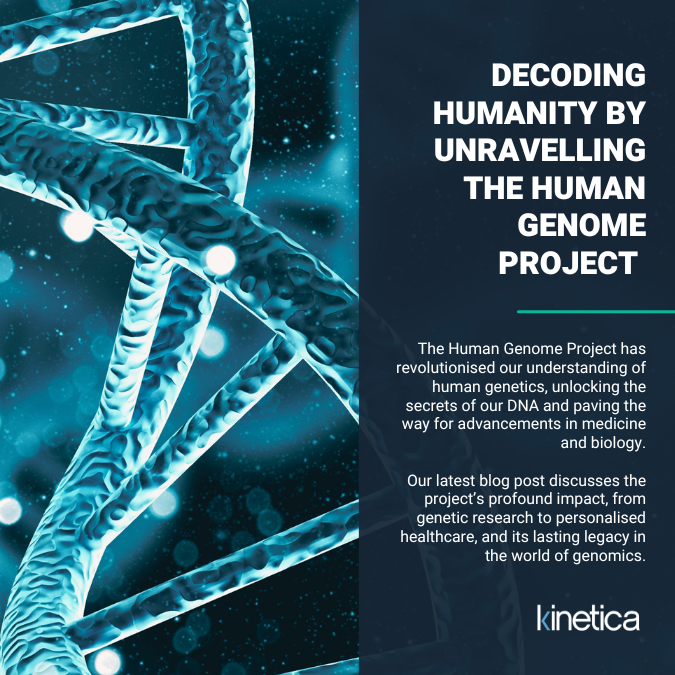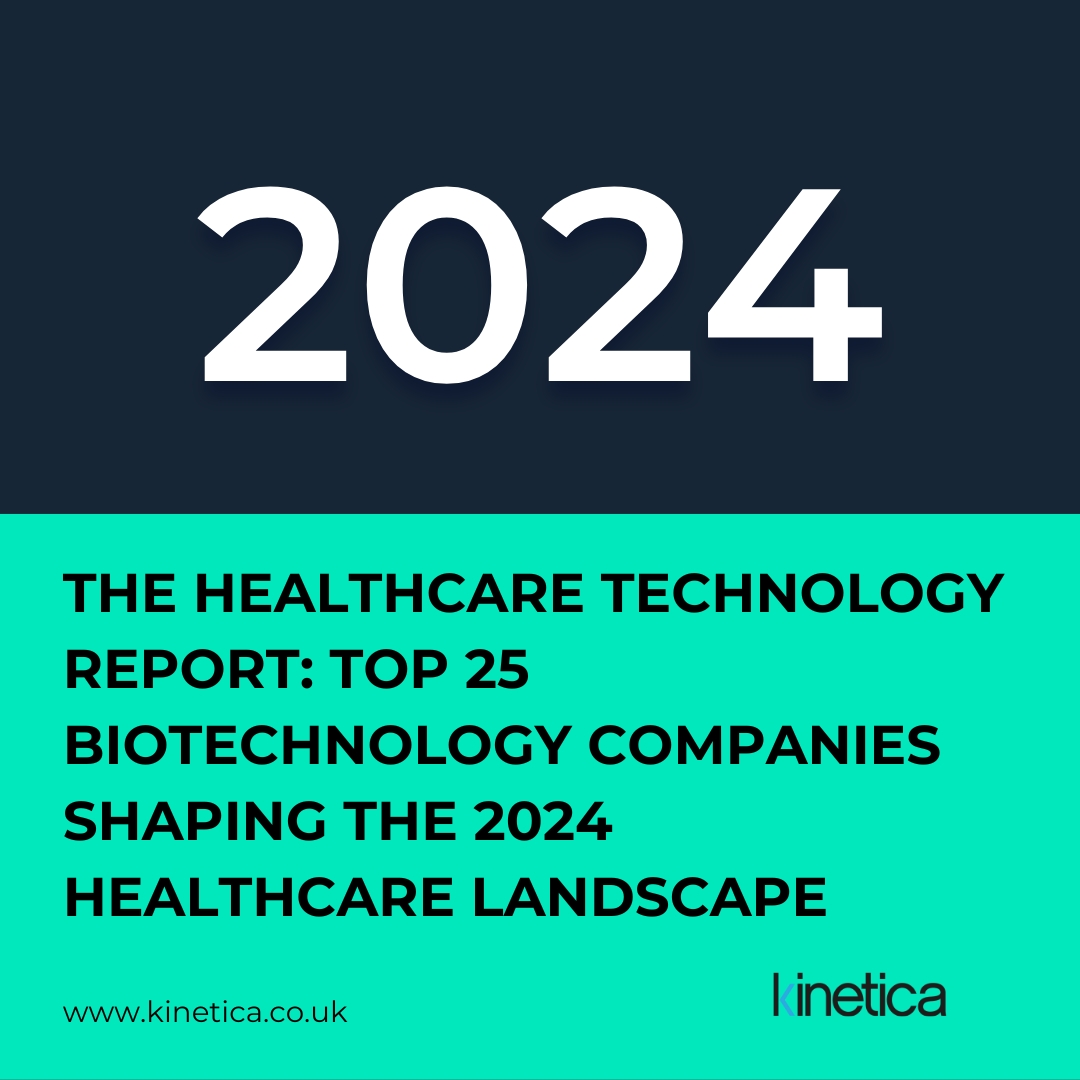INSIGHTS
The latest insights & news from Kinetica
What is going to be the Next Breakthrough in Genomics, and will it be CRISPR's Evolution Beyond Gene Editing?
24 Jul, 20245 minutesWhat is going to be the Next Breakthrough in Genomics, and will it be CR...

What is going to be the Next Breakthrough in Genomics, and will it be CRISPR's Evolution Beyond Gene Editing?
As a specialist recruiter in the genomics sector, I am thrilled to witness and be a part of the next major breakthrough in our field. Genomics has consistently evolved, and with each advancement, we gain deeper insights into the intricate world of genetic science. The future is now focused on a transformative shift in CRISPR technology, extending its capabilities beyond traditional gene editing into more sophisticated domains like precision epigenetic modifications, functional genomics, and cutting-edge diagnostics. Let’s dive into what this evolution means for our industry and the exciting career opportunities it brings.
CRISPR: A Catalyst for Change
CRISPR-Cas9 has revolutionised genetic research and therapeutic development with its precision and flexibility. By allowing precise cuts at specific DNA locations, it has enabled a new era of genetic manipulation. But the journey of CRISPR is far from over. The technology is evolving, and the future promises even more exciting applications that go beyond simple gene editing.
Precision Epigenetic Modifications
Epigenetics—the study of changes in gene expression without altering the underlying DNA sequence—is becoming increasingly important. The next breakthrough involves CRISPR-based tools designed for precise epigenetic modifications. These advancements allow scientists to add or remove epigenetic markers like methyl groups at specific DNA sites. This ability to "turn on" or "turn off" genes without changing their sequences opens up new possibilities for treating diseases linked to epigenetic changes, such as various cancers, neurological disorders, and metabolic diseases.
For professionals in the genomics sector, this means opportunities to work on cutting-edge projects that could redefine disease treatment and prevention strategies. Companies and research institutions are actively seeking experts skilled in epigenetics and CRISPR technology to drive these innovations forward.
Advancements in Functional Genomics
Functional genomics aims to understand the complex interactions between an organism’s genome and its phenotype. Traditional CRISPR-Cas9 has been instrumental in gene knockout studies, but newer CRISPR systems like CRISPRa (activation) and CRISPRi (interference) offer more nuanced approaches. These tools enable precise upregulation or downregulation of gene expression, providing deeper insights into gene function and regulatory networks.
For those in the recruitment space, this evolution signifies a growing demand for talent proficient in functional genomics. Roles involving CRISPR screens, multiplexed gene targeting, and pathway analysis are increasingly sought after. Professionals with expertise in these areas will be at the forefront of discovering new therapeutic targets and advancing our understanding of gene regulation.
CRISPR Diagnostics: A New Frontier
The versatility of CRISPR is also making waves in diagnostics. Innovative tools like SHERLOCK (Specific High-sensitivity Enzymatic Reporter unLOCKing) and DETECTR (DNA Endonuclease-Targeted CRISPR Trans Reporter) utilise CRISPR technology to detect genetic material with exceptional sensitivity and accuracy. This advancement has been pivotal in diagnosing infectious diseases, including COVID-19, and has the potential to revolutionise point-of-care testing.
For recruitment professionals, this burgeoning area highlights a demand for specialists in CRISPR-based diagnostics. The development and application of these tools require expertise in molecular diagnostics and a deep understanding of CRISPR technology, opening up diverse career opportunities in both research and clinical settings.
Ethical and Societal Considerations
With these advancements come important ethical and societal considerations. The power of CRISPR technology to make precise genetic and epigenetic modifications raises questions about long-term effects, off-target impacts, and potential unintended consequences. As the technology evolves, so too must our approach to ethical guidelines and regulatory frameworks.
As recruiters, it’s crucial to not only focus on technical skills but also ensure that candidates are aware of and prepared to navigate these ethical challenges. Professionals in the genomics sector will need to engage with these issues thoughtfully and responsibly as they contribute to groundbreaking research and applications.
The evolution of CRISPR technology into precision epigenetic modifications, functional genomics, and advanced diagnostics represents the next major breakthrough in genomics. For those of us in the recruitment sector, this shift signifies exciting new career opportunities and a growing demand for skilled professionals. As we look to the future, the continued advancement of CRISPR technology will undoubtedly reshape the landscape of genomics and biomedicine, opening doors to innovative treatments and solutions.
How do you think the evolution of CRISPR technology will impact career opportunities in the genomics sector, and what skills do you believe will be most valuable in this new era?
#genomics #crispr #epigenetics #geneediting #biotechnology #genetherapy #precisionmedicine #functionalgenomics #diagnostics #biomedicine #geneticresearch #healthcareinnovation #futureofmedicine #geneticengineering #biotechrevolution #geneticmodification #ethicalscience #genometechnology #scientificbreakthrough #molecularbiology



